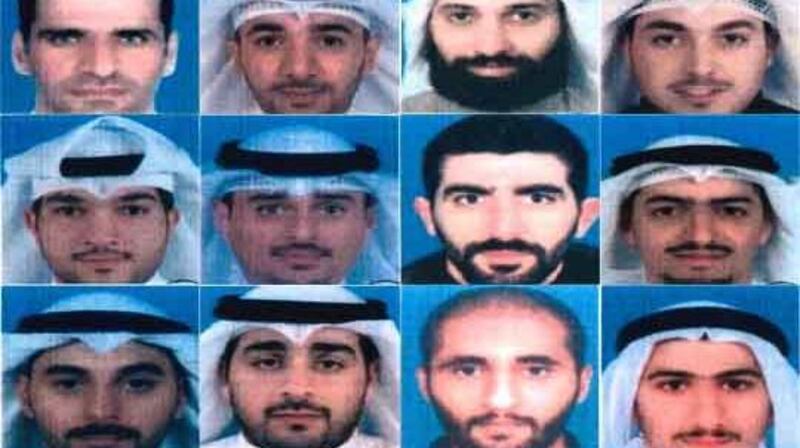Twelve convicted members of a cell backed by Iran and Hizbollah have been arrested in Kuwait after they went on the run last month.
The convicts, members of Al Abdali cell, which was uncovered in 2015, were captured in different parts of the country, the interior ministry said. Police are still hunting another two men.
The ministry announced that they will be making a statement regarding the sentences in the coming days.
“The ministry catching the convicts definitely demand respect and to commend them,” said Member of Parliament Abdul Wahab Al Babtain. “There were really tough times leading up to their capture and that it was a considered a huge role that they achieve that.”
The men were among 23 people convicted last year of providing intelligence to Iran and Hizbollah and stockpiling weapons and ammunition. They were released in February after an appeal but barred from leaving the country.
______________
Read more:
[ Kuwait cuts Iranian diplomatic presence amid hunt for terror-cell members ]
[ Kuwait protests to Lebanon over Hizbollah support of 'terror cell' ]
Some members of parliament, when the news broke, called for the resignation of the minister of interior and for a deeper look into the failures of authorities to capture the biggest terrorist cell found in Kuwait.
Parliament held an emergency joint session on July 20 after the ministry's revelation and called for “ministers to resign” or else face questioning.
The news of their capture has come as a relief to many in the ministry following reports by certain Kuwaiti newspapers that the men used “small boats to flee to Iran via an official Iranian vessel that was waiting for them just outside Kuwait’s territorial waters.”
Kuwait filed a complaint to the Lebanese government on July 22, saying that the country “must take the necessary measures to deter Hezbollah’s acts given that it’s a member of the Lebanese government.”
On Friday, Lebanese foreign minister Jebran Bassil contacted his counterpart in the Kuwaiti government to follow-up on the latest on the ABdali terrorist cell, according to Lebanon’s National News Agency.
The Minister has been in close contact with Kuwaiti officials to help the hunt for the Hezbollah-backed terror cell members.
Hassan Nasrallah, Hezbollah’s party leader in Lebanon, has since denied his party’s involvement saying that they have no cells operating in Kuwait.
As a massive manhunt took place last month, the interior ministry said security forces began raiding hideouts throughout the country, and urged citizens and residents to cooperate by providing any information about the fugitives. Those found not cooperating with the forces them would face prosecution.
A Kuwait lower court almost exactly a year ago from today, on August 13 2015, convicted 23 out of 26 suspects linked to the terror cell of crimes including spying for foreign entities, trading in weapons and training with firearms with intent to commit violence.
Two men were given death sentences that were later reduced to life in prison, while the others were sentenced to between five years and life in jail. The convictions were overturned on appeal several months later.
However, the supreme court in June overturned the acquittals of 16 of the accused, and sentenced one of them to life, another to 15 years, and the rest to 10 years each.
Their disappearance sparked a downturn in diplomatic relations with Iran, with Kuwait asking Tehran to reduce its diplomatic presence in the country. The foreign ministry also froze all cooperation with Iran.
Iran has denied any links to the cell, but Kuwaiti officials have accused Tehran of trying to interfere in domestic affairs by infiltrating local Shiite communities.





